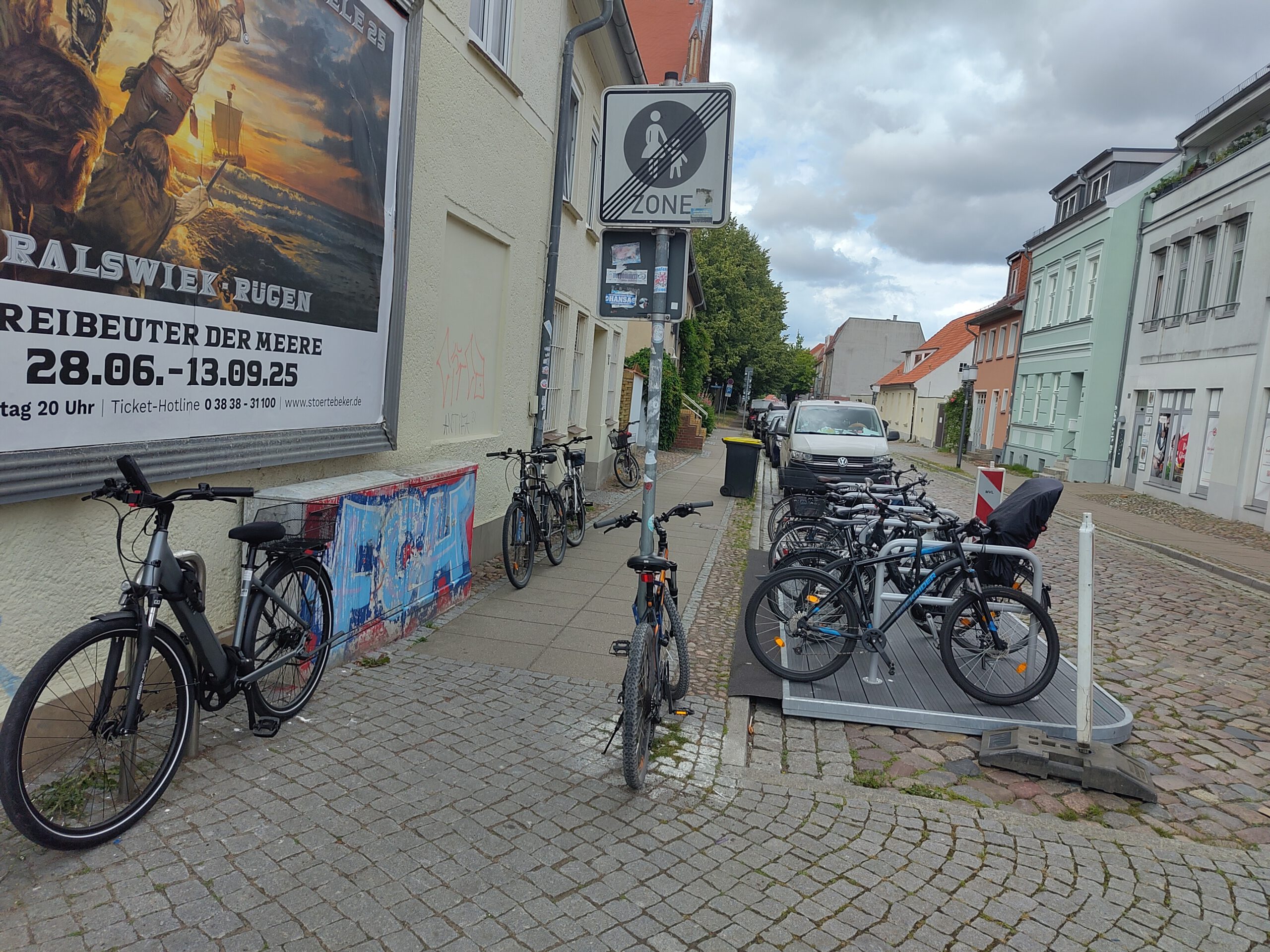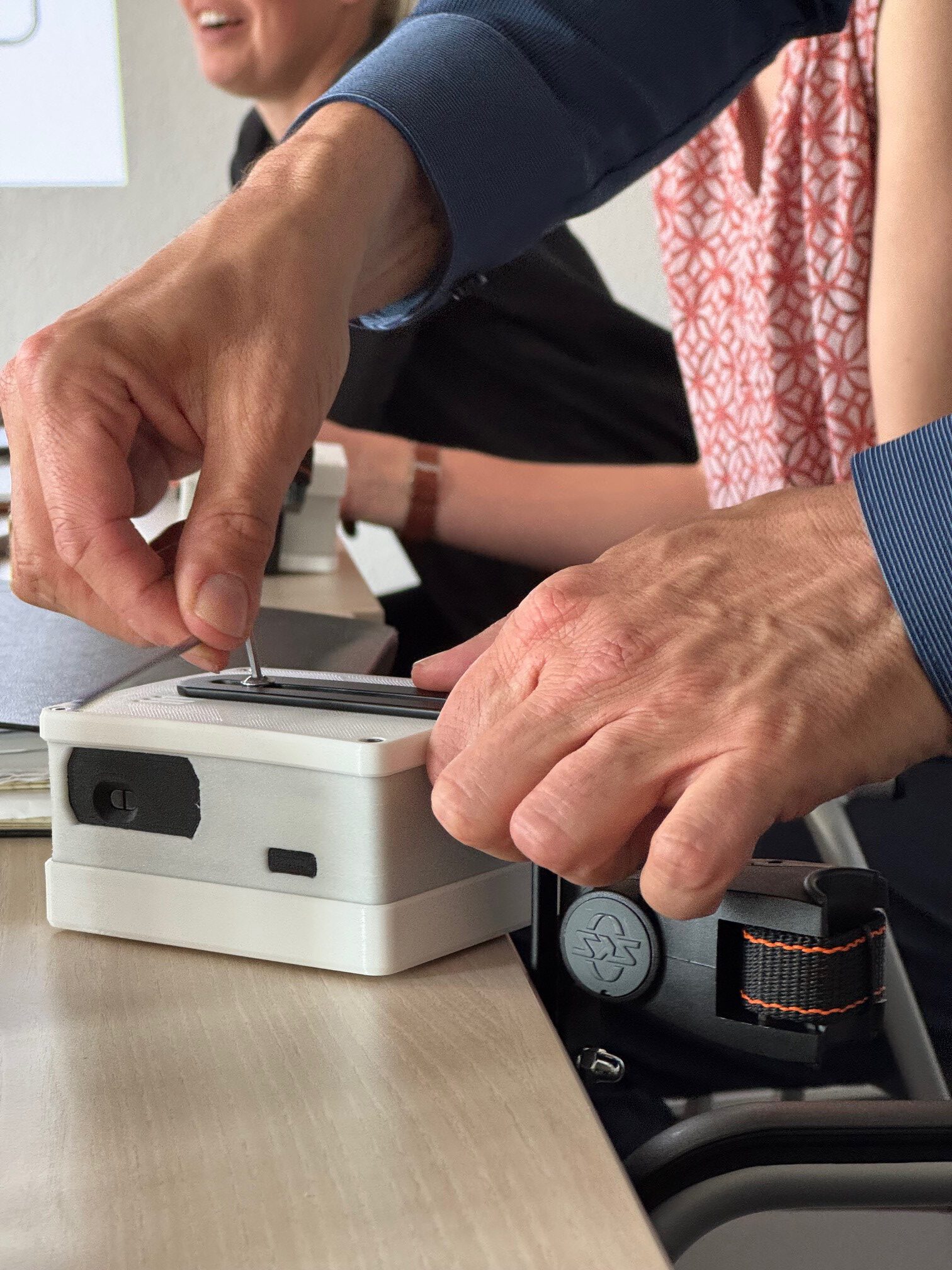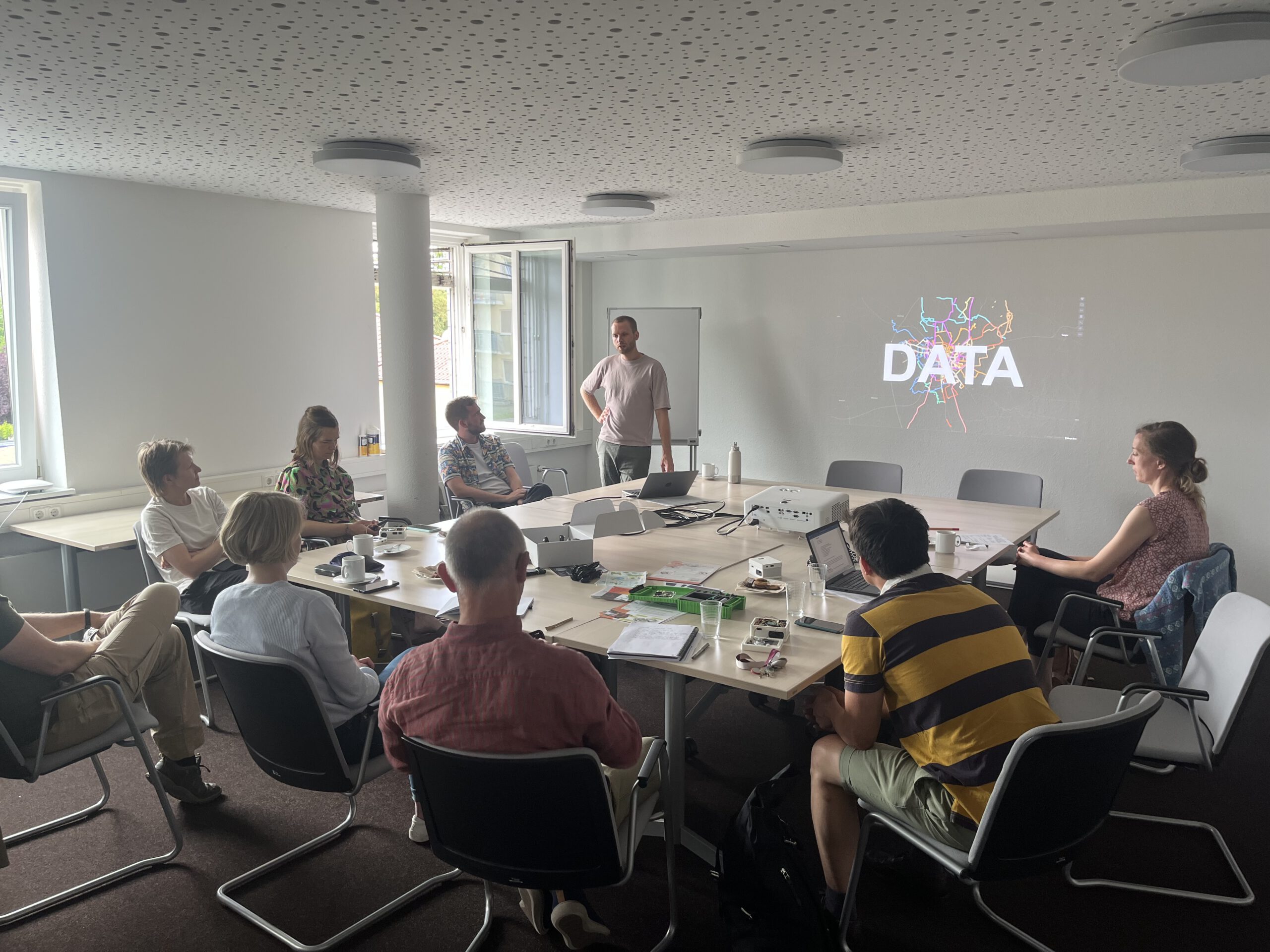
Greifswald explores ways to support active mobility
03 September 2025
How can cities strengthen their active mobility and make better planning decisions? Within the SUMPs for BSR project, the City of Greifswald is testing two complementary approaches: a mobile bicycle parking – a part of a small-scale experiment for active mobility measures, and a pilot to explore innovative data collection with mobile sensors. Both activities help the city learn what works in practice before making any permanent, larger investments.
Small-scale experiment: mobile bicycle parking
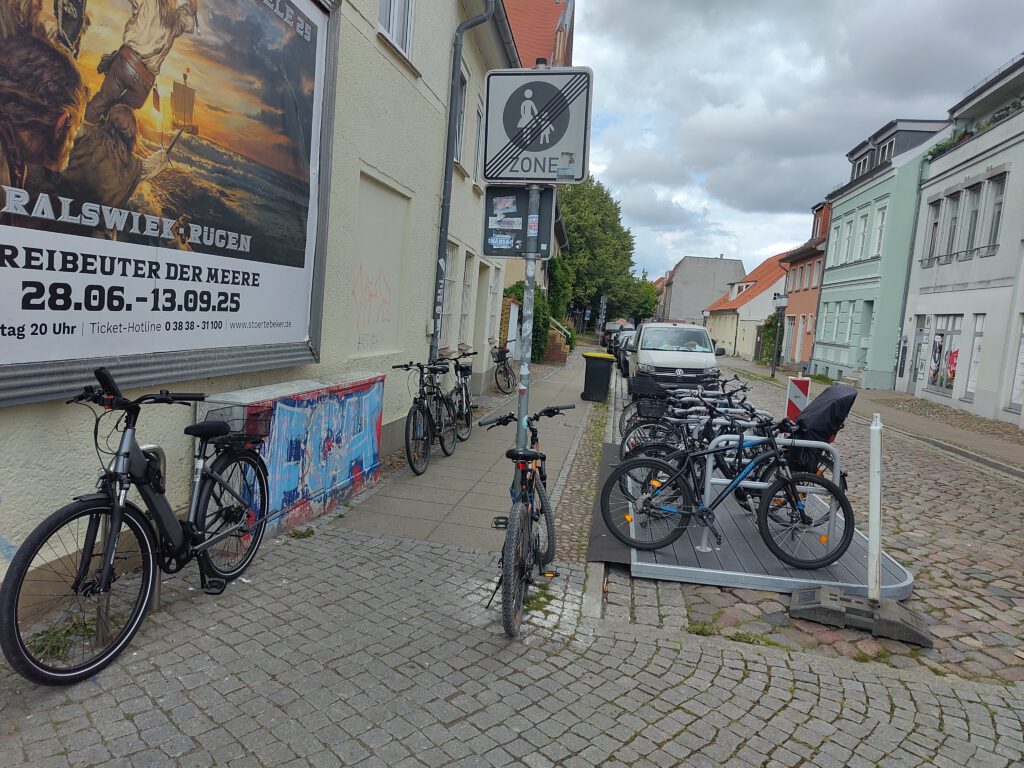
Greifswald has been piloting the first mobile bicycle platform in Mecklenburg-Western Pomerania. Initially located near the pedestrian zone and later moved to the museum harbour, the facility provides flexible parking space for cyclists where demand is high.
The aim is to test actual usage and gather citizen feedback on suitable locations. If a site proves successful, permanent bicycle parking solutions can be installed. This way, the city can respond to real demand rather than relying solely on planning on paper. Besides that, the Working Group for Bicycle- and Pedestrian-Friendly Municipalities in Germany (AGFK MV) recommends such flexible approaches as part of modern bicycle planning.
Data collection pilot: mobile sensors for cycling data
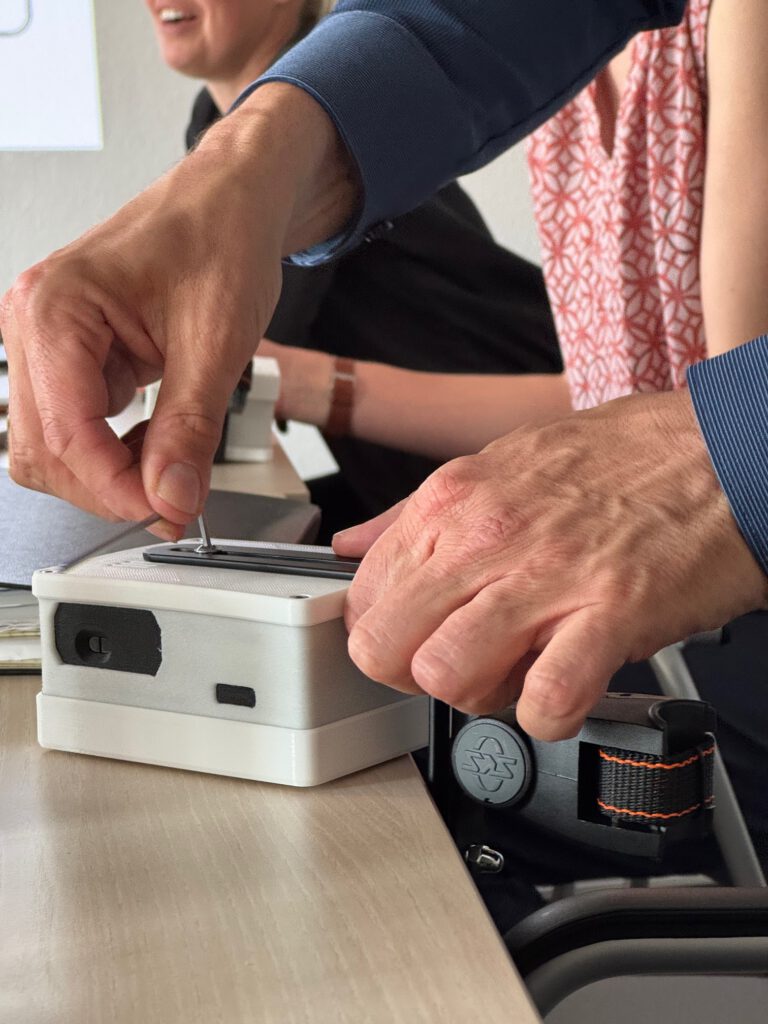
Greifswald is also piloting a new method for data collection on cycling conditions. The city has introduced five SenseBox:bike sensors and trained staff in their use. Mounted directly on bicycles, the devices measure, among others, the overtaking distance of cars.
This metric is key to understanding cyclists’ perceived safety and improving infrastructure design. Because the sensors are mobile, data can be collected across the entire city. Greifswald is gaining first practical experience and assessing how well the measurements can support sustainable mobility planning.
From testing to long-term impact
Together, these two initiatives show how experimentation and piloting can make sustainable urban mobility planning more effective. By testing bicycle parking in practice and piloting innovative sensor technologies, Greifswald is learning how to integrate citizen needs and real-world data into the development of active mobility solutions and reflect it in their Sustainable Urban Plan.
Read more (in German):






